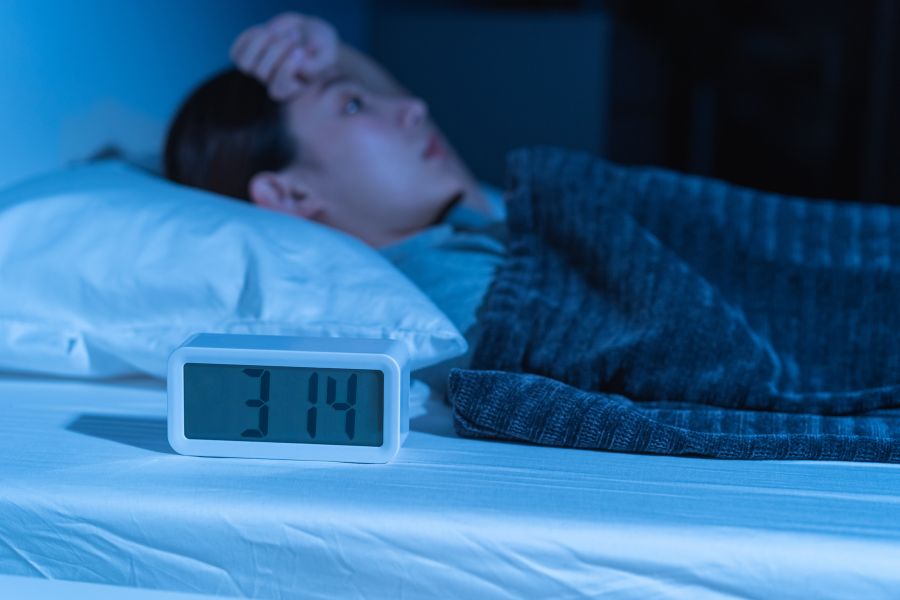Have you ever wondered if your symptoms are serious enough to need a neurosurgeon? When strange neurological symptoms strike or back pain won’t go away, it can be hard to know when it’s time to seek a specialist’s help.
Understanding when to see a neurosurgeon could make all the difference in your diagnosis, treatment, and overall recovery. Read on to learn more about the signs that shouldn’t be ignored and how a specialist can help you reclaim your health and quality of life.

Why Would You See a Neurosurgeon?
A neurosurgeon is a medical doctor specializing in diagnosing and treating conditions related to the brain, spine, and nervous system, often through surgical procedures and nonsurgical techniques. You might see a neurosurgeon for issues such as chronic back pain, brain tumors, spinal injuries, nerve compression, or movement disorders like Parkinson’s disease. Early intervention by a neurosurgeon can often prevent worsening of symptoms and improve outcomes significantly.
Can a Neurologist Do the Same as a Neurosurgeon?
While neurologists and neurosurgeons both specialize in conditions affecting the nervous system, their roles are distinctly different. A neurologist is not a surgeon; they focus on diagnosing and treating neurological disorders through medication and non-surgical therapies. In contrast, a neurosurgeon is trained to provide both surgical and nonsurgical treatments, including complex operations on the brain, spine, and nerves. If a condition requires surgery, only a neurosurgeon has the expertise to perform it. Understanding this distinction is crucial when deciding which specialist you need for optimal care.
When to See a Neurosurgeon for Neurological Conditions
When it comes to neurological symptoms, it can sometimes be tricky to know whether they warrant a specialist’s attention. Some signs may seem minor at first but could indicate underlying conditions that require prompt evaluation. In the sections below, we’ll explore specific symptoms that should prompt a visit to a neurosurgeon.

Atypical Headaches or Migraines
While occasional headaches are common, atypical or severe migraines that don’t respond to usual treatments can be a warning sign of a more serious condition. Persistent or worsening head pain, especially when accompanied by neurological symptoms like vision changes, weakness, or confusion, should be evaluated by a neurosurgeon. Early assessment can help identify issues such as tumors, vascular malformations, or increased intracranial pressure before they become more dangerous.

Memory loss or confusion
Memory loss or sudden confusion that affects daily activities could be more than just normal aging. These symptoms may indicate serious conditions like brain tumors, fluid buildup in the brain (hydrocephalus), or neurodegenerative diseases. A neurosurgeon can perform imaging studies and evaluations to diagnose the underlying cause and, if necessary, offer surgical solutions to relieve pressure or remove tumors affecting cognitive function.

Dizziness or Balance Issues
Persistent dizziness or balance problems may point to neurological concerns involving the brain, inner ear, or spinal cord. Conditions such as Chiari malformations, tumors, or issues with the cerebellum can interfere with coordination and stability. A neurosurgeon can assess these symptoms using imaging and diagnostic tests to determine if surgical intervention is necessary to restore proper function and prevent falls or injuries.

Unusual Pain or Numbness
Strange sensations such as tingling, numbness, or a “pins and needles” feeling in the arms, legs, or face can indicate nerve irritation or compression. These sensory disturbances are often caused by conditions like spinal stenosis, herniated discs, or tumors affecting nerve pathways. A neurosurgeon can assess the severity of nerve involvement and recommend targeted treatments to prevent permanent sensory loss.

Blurred vision and related problems
Changes in vision, such as blurred or double vision, can sometimes be linked to neurological issues rather than just eye problems. Brain tumors, aneurysms, or conditions affecting the optic nerves may cause these disturbances. If vision changes occur alongside headaches, dizziness, or weakness, it is important to seek evaluation from a neurosurgeon who can determine if surgical intervention is needed to address the underlying cause.

Sleep disorders
Chronic sleep disorders that don’t respond to traditional treatments can sometimes have a neurological cause. Conditions like obstructive sleep apnea, narcolepsy, or sleep disturbances due to brain tumors or spinal cord compression may require a neurosurgeon’s evaluation. Identifying the root neurological cause is crucial, and in some cases, surgical intervention may be necessary to restore healthy sleep patterns and prevent further complications.
Patients Testimonials
When to See a Neurosurgeon for Back Pain
Back pain is one of the most common medical complaints, but not all cases require surgical care. However, certain symptoms can signal serious underlying issues that demand evaluation by a neurosurgeon. Recognizing these signs early can make a critical difference in achieving the best possible outcomes. Below, we’ll highlight specific back-related symptoms that indicate it’s time to seek expert help.
Progressive weakness in the body
Progressive weakness in the arms, legs, or torso can be a sign of a serious neurological or spinal condition. This symptom may indicate compression of the spinal cord or nerve roots caused by herniated discs, tumors, or spinal stenosis. When weakness worsens over time, it requires immediate evaluation by a neurosurgeon to prevent permanent nerve damage and loss of function.
Pain radiating down the legs or arms
Sharp, shooting pain that travels down the legs (sciatica) or arms typically signals nerve root compression, often due to herniated discs or spinal stenosis. This type of radiating pain can interfere with daily activities and worsen over time if left untreated. A neurosurgeon can accurately diagnose the source of compression and offer effective solutions to relieve the pain and restore normal nerve function.
Trauma or injury to the spine
Trauma to the spine, whether from a fall, car accident, or sports injury, can lead to fractures, dislocations, or spinal cord damage. Even if symptoms aren’t immediately severe, spinal injuries require urgent evaluation by a neurosurgeon to prevent long-term complications. Prompt treatment can stabilize the spine, protect the nerves, and promote better recovery outcomes.
Spinal conditions
Certain spinal conditions, such as herniated discs, spinal stenosis, spondylolisthesis, scoliosis, and spinal tumors, can cause significant pain, weakness, or numbness. When conservative treatments fail or when neurological symptoms develop, it’s important to consult a neurosurgeon. Early surgical intervention can relieve pressure on the nerves, correct deformities, restore stability to the spine, and improve overall function.
Failed non-surgical treatments
When conservative approaches like physical therapy, medications, or injections fail to relieve symptoms, it may be time to consult a neurosurgeon. Persistent chronic pain, weakness, or numbness despite months of non-surgical treatment could indicate a structural issue that requires surgical correction. A neurosurgeon can evaluate your condition and discuss minimally invasive or traditional surgical options to help restore your quality of life.
Revision surgery
Sometimes, previous spinal surgeries do not achieve the desired outcome, or new issues may arise over time. Persistent pain, instability, or worsening neurological symptoms after a prior operation may require revision surgery. A neurosurgeon skilled in complex spinal procedures can assess the situation, correct the underlying problem, and help you regain a better quality of life.

Best Neurosurgeon in Orange County
Dr. Taghva specializes in the treatment of neck pain, low back pain, sciatica, brain tumors, Parkinson’s disease, as well as other conditions requiring brain or spine surgery.

Schedule an Appointment with a Neurosurgery Specialist
Choosing an experienced neurosurgeon is crucial when facing neurological or spinal issues. The precision required in these delicate areas demands a specialist who not only understands complex anatomy but also stays current with the latest treatment innovations. A skilled neurosurgeon can make the difference between a full recovery and lingering symptoms.
Dr. Alexander Taghva is a board-certified neurosurgeon serving Orange County, California, with advanced training from Johns Hopkins University School of Medicine and specialized expertise in both traditional and minimally invasive spine surgery, neuromodulation, and brain conditions. Dr. Taghva’s commitment to patient care and innovation makes him the trusted choice for neurosurgical needs. Call us today at 949-388-7190 or visit our Contact Page to schedule your consultation.
